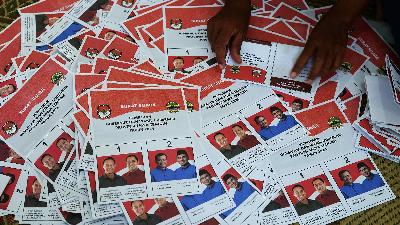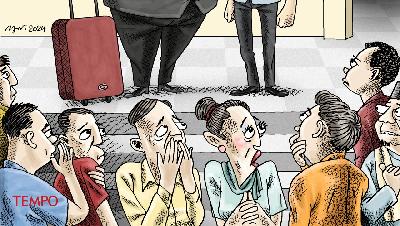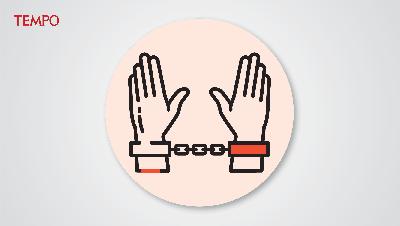Police Hands in the 2024 Regional Head Elections
Monday, November 11, 2024
There are indications that the police are taking sides in local elections in a number of regions. This is the next setback for democracy after the presidential election.
arsip tempo : 174589479029.

THE involvement of the police in politics, specifically the simultaneous regional head elections, is once again under the spotlight. Police officers who should be neutral and be focusing on maintaining order during the elections are alleged to have taken sides with particular candidates. This practice not only damages the principle of neutrality that the police should uphold but also threatens the very foundations of democracy.
This magazine has uncovered strong indications of the involvement of police officers in the election for governor of North Sumatra. There, the police are alleged to be working for the victory of Bobby Nasution, son-in-law of the seventh president, Joko Widodo. As well as providing funds for campaign materials, the police are also alleged to have mobilized village heads by threatening them with audits of village funds or the opening of other legal cases if they do not support Bobby.
There is a similar story from Central Java. Gubernatorial candidate Ahmad Luthfi, former Chief of Central Java Police, who has been close to Jokowi since he was the Chief of Surakarta Police, is alleged to have made use of police officers to mobilize support down to the village level.
The regional elections are an important democratic event in Indonesia’s political system. Through these elections, people have an opportunity to choose leaders who will influence the direction of development of their areas for at least the next five years. The neutrality of the police is an important factor to ensure that the people are free to choose their leaders without any pressure or intimidation.
If the police take sides, a number of serious problems will arise. During the campaign and on polling day, political tensions between candidates and their supporters will frequently flare up. In this situation, the police should stand in the middle and guarantee the election process passes peacefully without any disruption, and not become the cause of horizontal conflicts.
Police officers who are not neutral could misuse their authority to put pressure on or even bring down anyone they see as a rival of the candidate they support. A real example of this was seen in the viral case from Indramayu, West Java, when a candidate for regent openly used the name of a retired police officer to intimidate supporters of her opponent. This video shows the position of the police, who should be neutral, was exploited to spread fear and reinforce the domination of a particular political grouping.
As well as being an ethical violation, the involvement of the police in politics also provides an opportunity for corruption and nepotism. The closeness of police officers with politicians leads to a mutual relationship that could cause the people to lose out. “There is no such thing as a free lunch.” It is likely that police officers that support particular candidates do so in the hope of special treatment in the future, such as promotions or increased funding in the interests of a small number of people.
The lack of neutrality of police in the regions is one of the legacies of the abuse of power in the most recent presidential election, when police were also deployed to ensure the victory of a particular presidential candidate pairing. As a result, like the presidential election, it is difficult to hope that these simultaneous regional head elections that cost so much money to organize will result in the election of leaders who will bring about improvements.











